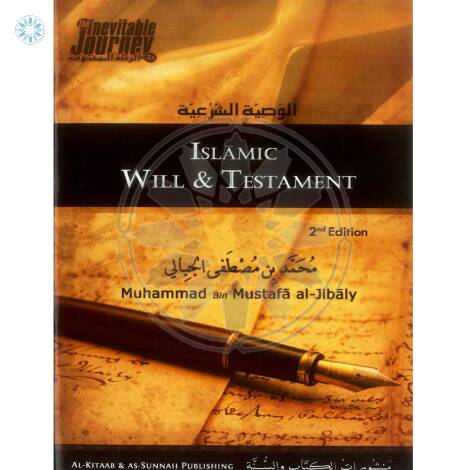Islamic Will & Testament
Islam has a big emphasis on exiting this world in the best possible way. The Prophet famously visited the deathbed of a number of people, including his own uncle Abu Talib, in order to encourage them to accept Islam. The Prophet also said: “If a person’s last words are Laa ilaaha ill-Allaah, Paradise will be guaranteed for him.” (Ahmad/Abu Dawud).
How our inheritance is handled is the last impactful legacy we can leave on this world. We should therefore really should make sure it is done in a way pleasing to Allah.
The Prophet said “It is not permissible for any Muslim who has something to will to stay for two nights without having his last will and testament written and kept ready with him.” (Bukhari).
A will is a legally-binding document that gives instructions on the way that your estate (the assets you leave behind) should be distributed. In a conventional, non-Islamic will, you simply leave what you want to whomever you want. That’s why you get stories like this or this with people leaving all their money to charity or even pets.
Islam tells us something different. It pre-determines who inherits our assets (read the early verses of Surah an-Nisa (chapter 4) for the verses on this). Although these calculations can get tricky for the average person to manually work out, the point is that there is a set way of slicing up the pie to which we have to adhere.
In a nutshell, the pre-set inheritance is the key difference in an Islamic will.
And in a non-Muslim country, you need to leave a will that sets all of that out in detail, because domestic laws will otherwise revert to the laws of intestacy, not the laws of Islam. As long you as you detail how you want your assets to be distributed, English law (and likely other domestic law) will not interfere with that.
This is a complete Islamic will & testament, with charts for inheritance, Qur'anic injunctions as well as Shari'ah compliant procedures, do's and don'ts, and more.
Table of Contents
- Preamble
- Funeral and Burial
- Executor and Guardian
- My Assets and Liabilities
- Settlement of Debts and Expenses
- Contributions and transfers Distribution of the Residuary Estate Separability
About The Author
Muhammad Al-Jibaly
Muhammad Al-Jibaly acquired a sound knowledge of al-Albanis fiqh and methodology through personal contact with the Shaykh and an extensive study, indexing, and teaching of his works. He Studied and maintained strong friendship with most of the late Nasir ud-Din al-Albanis prominent students from Syria, Jordan, and other countries (1983 to current). He has Authored many original books and articles in various areas of fiqh, `aqidah, manhaj, da`wah, etc and has Lectured at many conferences and seminars, in North America and around the world.
Additional Product Information
- ISBN: 9781891229770
- SKU: 22185
- Cover: Paperback
- Binding Paperback
- Format: Paperback
- Author Muhammad al-Jibali Publisher
- Publishers: Al-Kitab & As Sunnah Publishing
- Pages: 149
- Size: 17x24Cm
Share
You may also be interested in
-
 The Dreamer's Handbook
The Dreamer's HandbookThe Inevitable Journey, We inevitably go through the journey starting in this life and extending into the grave, before our final abode in the hereafter. In the process, we pass through stages of sickness, death, an...
£12.00 -
 Festivals & Celebrations
Festivals & CelebrationsFestivals and celebrations are occasions of joy and happiness. They have their distinctive spirit in all societies and cultures, and are eagerly awaited and heartily welcomed by everyone. The feeling of excitement a...
£8.95 -
 Closer than a Garment
Closer than a GarmentMarriage holds a position of perpetual significance because of the central role it plays in human life. It is not surprising, therefore, that the scholars of Islam have discussed it extensively through the ages. Und...
£10.00 -
 Birth Prevention an Islamic Perspective
Birth Prevention an Islamic PerspectiveThe purpose of this series, enter in to islam completely, is to present some unduly belittled issues, prove their value, and discuss their regulations.
£5.95 -
 Inheritance Regulations & Exhortations
Inheritance Regulations & ExhortationsThe Inevitable Journey, We inevitably go through the journey starting in this life and extending into the grave, before our final abode in the hereafter. In the process, we pass through stages of sickness, death, an...
£10.00







.png|/storage/40be0590_Closer than a Garment (2).png)










